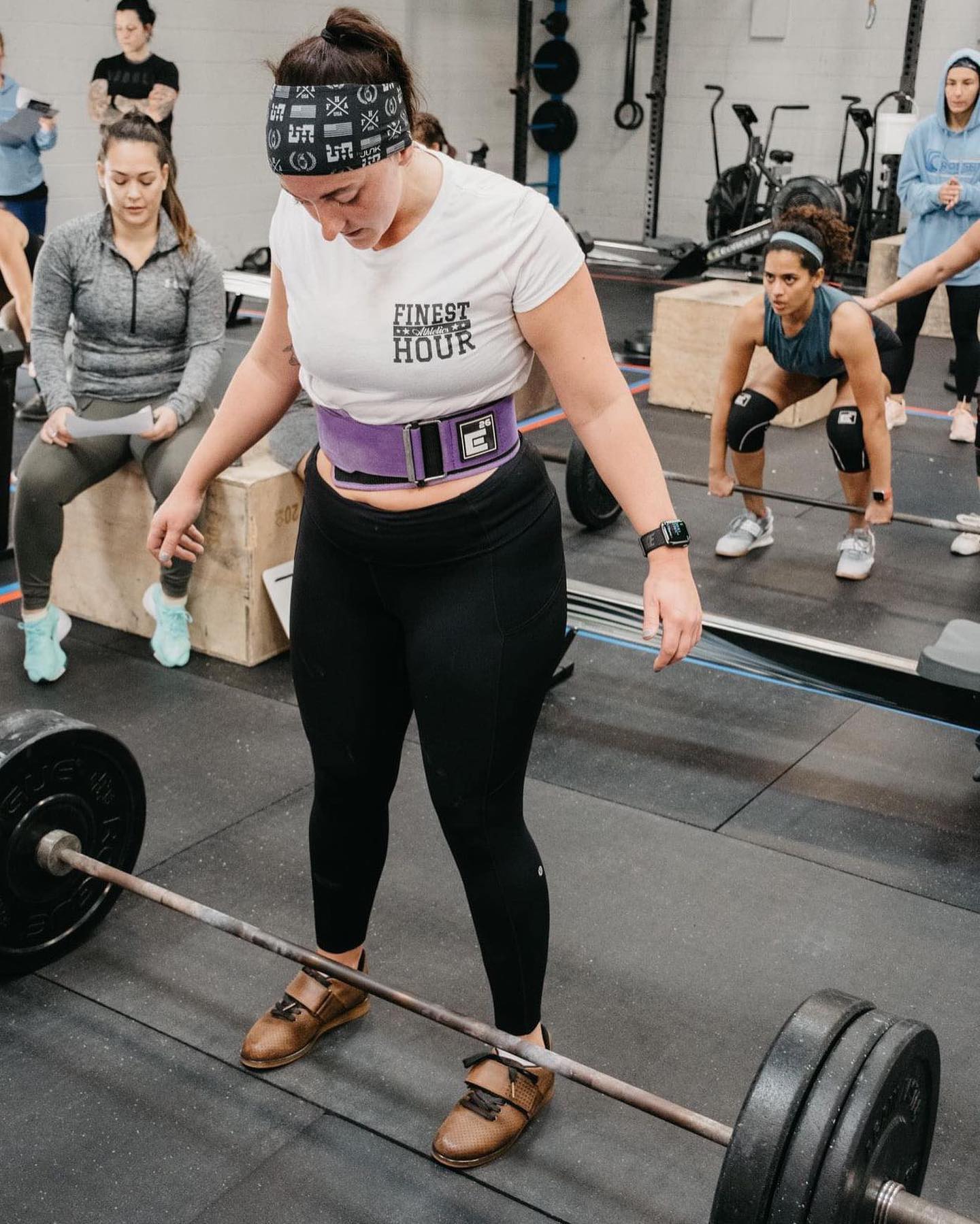Factors in Fat Loss
By: Mackenzie Davidson, M.S. Nutrition Education
There are many things you can do in the gym to improve your health. Exercise has benefits ranging from improvements in strength, cardiorespiratory endurance, posture to fighting chronic disease and boosting your mood. It is no secret implementing regular exercise can improve your health, but what other changes should we be looking to implement? Once you have increased your physical activity levels then it is time to further evaluate three other habits…
- Overall Caloric Intake
- Macronutrient Balance
- Sleep
First off, the topic of weight management cannot be addressed without the discussion of caloric intake. Caloric intake is critical for weight management. In order for your body to adequately perform exercise, it must have at least a minimum amount of calories. This minimum is called the Basal Metabolic Rate, or BMR. BMR accounts for approximately 60% of your energy expended on a daily basis and is required to complete life-sustaining activity. This amount will vary based on sex, age, activity levels, weight, and the goals we are aiming to achieve. If your body does not have the calories (ie. energy) it needs to perform exercise, or even be more active it pulls it from the breakdown of muscle tissue. On the other hand, if you are consuming more calories than needed this will prevent further weight loss from occurring.

Next, it is important to remember that each macronutrient plays a vital role in daily tasks and body functions. Protein aids in muscle building and recovery. Our bodies are constantly in a state of turnover of breaking down and rebuilding tissue. To build muscle hypertrophy, you must be getting enough protein in your diet to help support that rebuilding process. The quality of the protein consumed and the timing after exercise are also important components to consider. The consumption of high-quality protein soon after exercise provides the most effective way of repairing muscle tissue. Exercise puts the body into a catabolic state where there is a breakdown of certain tissues to provide the energy to sustain exercise (Dunford & Doyle, 2015). To repair tissues, consuming these quality proteins within a couple hours post-exercise will aid in the process of rebuilding. The amount of protein recommended will vary based on the type of exercise being performed. For example, a recreational athlete is recommended to consume 1 g/kg of body weight where an ultra-endurance athlete may require 1.2-2.0 g/kg of body weight. (Dunford and Doyle, 2015). Carbohydrate intake may make some peoples heads turn as it used to have an evil connotation. However, no food is evil! Just as no one thing will make you lose or gain weight. Carbohydrates are the most efficient fuel source, giving us energy to think, exercise, and perform daily tasks. Fruits, vegetables, and whole grains all fall in this category and should be included in your daily diet. Fats are also not to be ignored and are a critical component of a healthy diet. Mono and polyunsaturated fats provide us with energy, help keep us satiated and provide fat-soluble vitamins. Linoleic (omega 6) and linolenic (omega 3) are essentials as our body does not produce them naturally. Specifically, Omega 3 gives us eicosapentaenoic acid (EPA) and docosahexaenoic acid (DHA). These provide important development for the eyes and brain, and optimal function for the cells, and may also play a role in the prevention of heart disease.
Outside the realm of your diet and exercise, when trying to improve body composition is getting enough sleep. Sleep is essential for everyone and insufficient levels can cause a myriad of issues. While the human body requires both NREM and REM sleep, NREM is most important to aid in recovery. During stages three and four of NREM the body releases growth hormone, restoring energy levels and strengthening the immune system. (Taylor, 2016) Growth hormone is responsible for protein synthesis and breakdown of macronutrients. Given this, it further emphasizes the need for obtaining deep sleep for optimum nutrient utilization.
So why have you not been seeing changes with your body composition? Have an honest conversation with yourself. After exercise, are you filling your body with good nutrients? Are you eating too much? Not getting adequate sleep? These are a few things to further evaluate. Those who try to do too much at once, wind up doing nothing at all. It is about taking small steps forward, and enjoying the process of changes along the way!
________________________________________________
Mackenzie Davidson
- MS in Nutrition Education
- CrossFit Level 1
- NASM Certified Personal Trainer and Behavior Change Specialist













